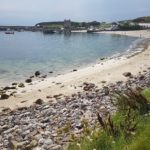With this public consultation, the European Commission would like to…
Winter Swimmers: the Bathing Water Expert Group wants you to fill out this survey
The Bathing Water Expert Group is inviting winter swimmers to take 15 minutes to fill in this questionnaire before 6 May 2022. In the last two years, there has been an increased interest in winter swimming. Given the increased interest in winter swimming, the national Bathing Water Expert Group would like to find out more information about where, when and why people are swimming during winter to help inform potential options for helping to protect winters swimmers’ health.
The Group would appreciate if you can also encourage your friends and family who enjoy winter swimming to complete the questionnaire.
Fill out the survey:
https://ec.europa.eu/eusurvey/runner/WinterSwimmerSurvey2022
About the Bathing Season
In Ireland the official bathing water season runs from 1 June to 15 September. Local authorities monitor and manage a total of 148 designated bathing waters and 70 other waters are monitored during the season. As a result, there is an existing process that helps protects bathers’ health and there is a national approach to communicating bathing water quality to the public. This only applies during the bathing season, however.
The EPA produces an annual report on bathing water quality. The most recent report was for 2020 and that can be found at https://www.epa.ie/publications/monitoring–assessment/freshwater–marine/bathing-water-quality-in-ireland-2020-.ph The EPA also provides more up to date information on the www.beaches.ie website.
Winter swimming / Out of season swimming
‘Winter swimming’ or ‘Out of season swimming’ is any swimming that takes place from 16 September to 30 May.
Winter Swimming Checklist
This is a simple checklist for you to consider before swimming:
• Do a basic pollution risk check of the bathing spot before you go in.
• Don’t go in with an open cut or wound.
• Avoid getting water into your mouth, ears and eyes.
• Shower afterwards.
• Report signs of pollution.
About the Bathing Water Expert Group
The BWEG is made up of representatives from the major stakeholders concerned with bathing water management i.e.: the Department of Housing, Local Government and Heritage; the Environmental Protection Agency; the Health Service Executive; the County and City Management Association; An Taisce; Coastwatch Ireland; Water Safety Ireland; and Irish Water. The key functions of the expert group include, but are not limited to, providing advice regarding the implementation of the Bathing Water Directive in Ireland and developing guidance for its implementation.







